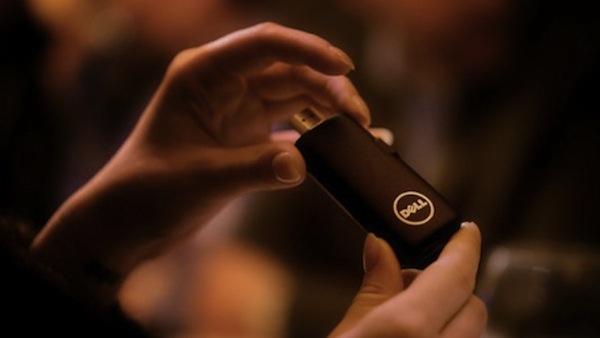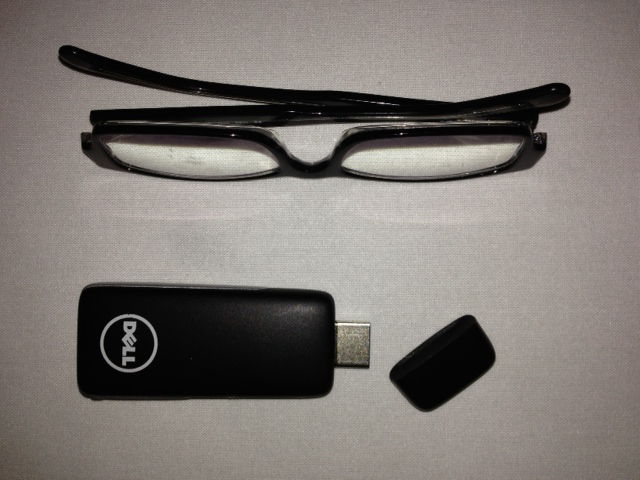Dell's Ophelia Android Stick Hits the FCC
Dell's Ophelia is coming but the company is dropping the codename before it hits the market.
Back in August, Dell announced that it was shipping its Android-based PC-on-aStick to beta testers. Now it looks like the device, codenamed Ophelia, could soon be headed for general release.
Engadget reports that Ophelia has hit the FCC. This time, the device is being referred to as the Wyse Cloud Connect. That makes sense, considering the device is built on Dell's Wyse software technology.
Under the hood, you're looking at the same 8 GB of storage and microSD card support that we heard about earlier this year. The FCC documents also list support for an MHL-capable HDMI connector, Bluetooth, 802.11n WiFi, and two USB ports. No word on the Cortex-A9 CPU we heard about back in May nor do we have confirmation on the version of Android the Wyse Cloud Connect will use. Last we heard, it was 4.1.2, though that may have changed.
Ophelia was developed to be an inexpensive alternative to tablets and PCs. It has built-in support for Wyse's PocketCloud, which allows users to access files stored on PCs, servers or mobile devices. First launched at CES 2013 as Project Ophelia, the device is about the size standard USB stick and plugs into the HDMI port of any HDTV or monitor, turning it into a makeshift Android-based PC that also provides access to locally-stored files, desktop remote access, and all the apps and media served up on Google Play. Bluetooth support allows users to connect a mouse and a keyboard.
No word on pricing or a specific release date just yet, but we'll keep you posted!
Get Tom's Hardware's best news and in-depth reviews, straight to your inbox.
Follow Jane McEntegart @JaneMcEntegart. Follow us @tomshardware, on Facebook and on Google+.

Jane McEntegart is a writer, editor, and marketing communications professional with 17 years of experience in the technology industry. She has written about a wide range of technology topics, including smartphones, tablets, and game consoles. Her articles have been published in Tom's Guide, Tom's Hardware, MobileSyrup, and Edge Up.
-
amdfangirl Are they dropping the codename in fear of it being infected by insanity? (Hamlet reference)Reply -
ishark47 It was about time that someone decided to make an decent android pc/stick product. Though there are hundreds of much powerful quad core, MALI 400 graphics android Chinese android devices, none of them seem to be stable, reliable and hassle free.Reply

